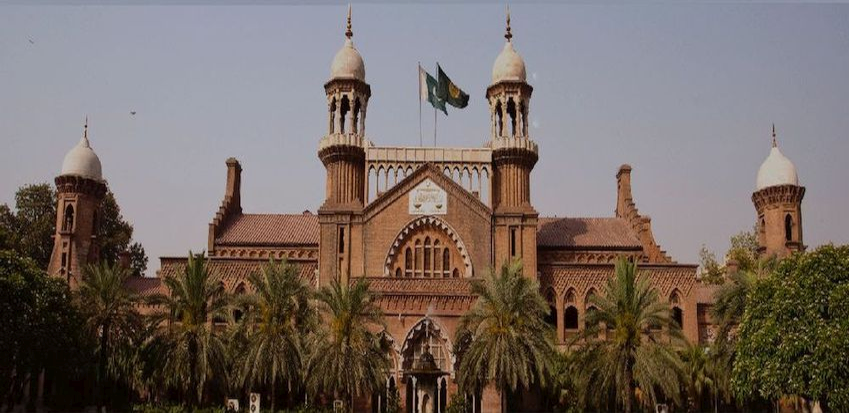Mere Failure of Prosecution to prove the case does not entitles Plaintiff to Damages unless Malice and Absence of Probable cause are Concurrently Established --- Lahore High Court, Lahore
Islamabad 11-10-2024: The Lahore High Court, in a recent decision, has overturned the trial Court’s partial decree awarding damages for malicious prosecution in the case of Asghar Ali Vs. Muhammad Asghar, dismissing a claim of Rs. 53,924,500 made by the respondent, Muhammad Asghar. The judgment, delivered by a bench comprising Mr. Justice Ahmad Nadeem Arshad and Mr. Justice Ch. Muhammad Iqbal, clarifies the legal boundaries of malicious prosecution claims and sets a precedent on the necessity of proving malice and absence of reasonable cause.
The case stemmed from a dispute over the allocation of 12½ acres of land under the Punjab Government Lambardari Scheme. The respondent, Muhammad Asghar, who is the Lambardar of Chak No.8-Younisabad, had initially been allotted the land by the Punjab Government. However, the appellant, Asghar Ali, challenged the allotment on the grounds that the land was reserved as “Charagah” (grazing land) and could not be allotted for private ownership.
Muhammad Asghar filed a suit in 2012, alleging that the appellant’s repeated appeals and petitions against the allotment were initiated with malafide intentions and constituted malicious prosecution. He claimed Rs. 53.9 million in damages for mental agony, loss of reputation, and monetary losses, asserting that the appellant’s legal actions caused significant harm to his well-being and public standing.
In response, the appellant contended that his actions were motivated by public interest and the protection of state land, asserting that the land could not legally be allotted as it was designated for communal grazing purposes.
The trial Court partially ruled in favor of Muhammad Asghar, awarding him Rs. 1,00,000 as compensation for the litigation costs and travel expenses incurred. Dissatisfied with this partial decree, Asghar Ali filed an appeal in the Lahore High Court, seeking a complete dismissal of the malicious prosecution claim.
The Lahore High Court bench, after a thorough review of the case, reversed the trial Court’s decision. The Court highlighted that the respondent failed to meet the legal requirements to establish a claim of malicious prosecution. Mr. Justice Ahmad Nadeem Arshad emphasized that for a successful claim, the plaintiff must prove six elements: prosecution by the defendant, favorable termination of prosecution, lack of reasonable and probable cause, malice, interference with liberty or reputation, and actual damage suffered.
The Court found that the respondent was unable to produce sufficient evidence of damages, such as medical prescriptions or receipts for legal expenses, and failed to substantiate claims of mental or physical harm resulting from the litigation. Additionally, the Court noted procedural flaws in the presentation of documentary evidence, which made the respondent’s submissions inadmissible.
In its analysis, the Court confirmed that the disputed land was indeed “Charagah” and thus not eligible for allotment under the Lambardari Scheme. The Court ruled that the appellant’s legal challenges to the allotment were based on reasonable and probable cause and were not motivated by malice. The judgment noted that the appellant’s actions were aimed at protecting state resources and preventing the illegal privatization of communal land.
The Lahore High Court referred to several legal precedents, including Muhammad Akram Vs. Farman Bibi (PLD 1990 Supreme Court 28), Niaz and others Vs. Abdul Sattar and others (PLD 2006 Supreme Court 432), and Subedar (Retd) Fazle Rahim Vs. Rab Nawaz (1999 SCMR 700), to support its conclusions on the principles of malicious prosecution. It reiterated that mere failure of prosecution does not entitle a plaintiff to damages unless malice and absence of probable cause are concurrently established.
The Lahore High Court concluded that the appellant’s actions were not malicious and were based on genuine concerns regarding the legality of the land allotment. It set aside the trial Court’s judgment and dismissed the suit filed by Muhammad Asghar for recovery of Rs. 53,924,500.
With this decision, the Lahore High Court has reinforced the high threshold required for proving malicious prosecution and clarified the evidentiary standards necessary for such claims. This ruling serves as a reminder that public interest actions, even if unsuccessful, do not automatically qualify as malicious prosecution unless accompanied by clear evidence of malice and lack of reasonable cause.
Powered by Froala Editor








